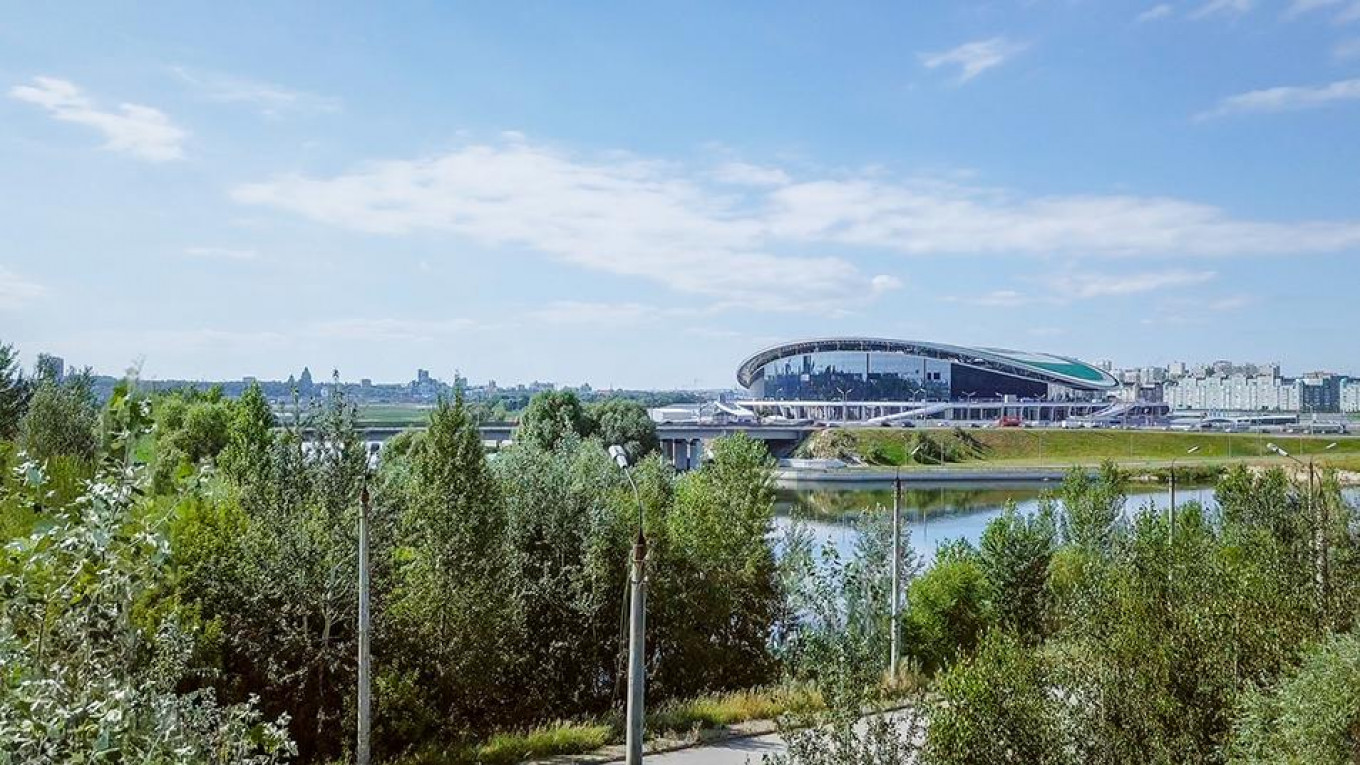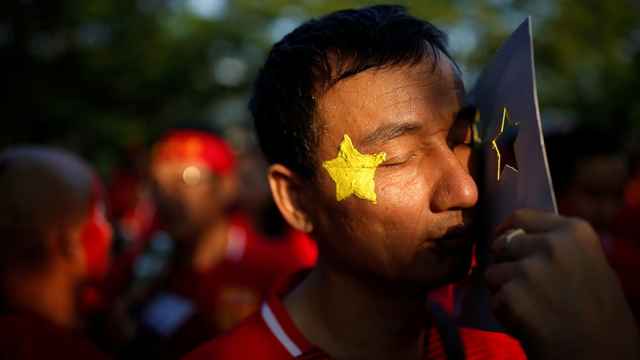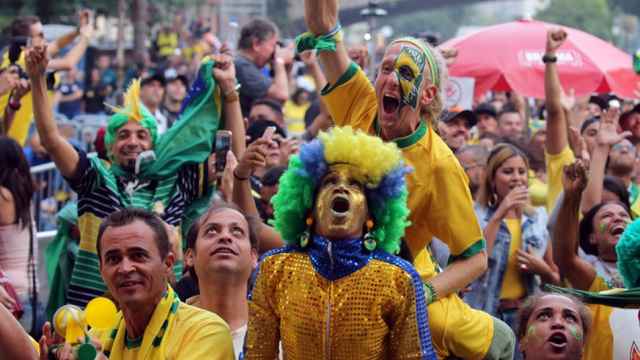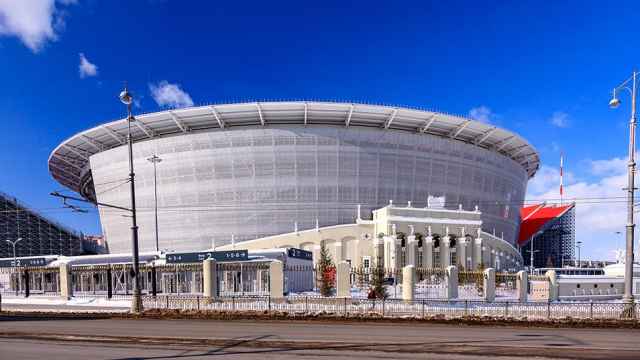History
The Kazan Arena was the first venue to be completed for the World Cup, opening in 2013 after just three years of construction. It became the premier arena in a city already well-stocked with sporting facilities. For a city that considers itself to be the sporting capital of Russia, the alacrity was unsurprising. Kazan boasts highly ranked teams in football, hockey, basketball and volleyball, and it was a no-brainer to include this city as a host for the 2018 World Cup.
Among the first events to be held here were the opening and closing ceremonies of the 2013 Summer Universiade. Since then it has housed Kazan’s top-tier football team, FC Rubin. It was also one of the venues for last year’s Confederation Cup.
In 2015, FC Rubin was briefly kicked out of its stadium to make room for the World Aquatics Championships, when two swimming pools took over the main pitch.
Architecture and Location
The 45,000-seat Kazan Arena might be most impressive when seen from above, where it has the shape and color of a water lily, floating right next to the Kazanka River. From the front, it boasts the largest TV screen installed on any stadium in Europe, at 3,700 square meters (roughly half the area of a football field). The screen should be in tip-top shape when the crowds of sports fans descend upon the city in June; it is being serviced, and washed, at a price tag of $45,000.
Getting there
By public transport: On game days, traffic around Kazan Arena will be restricted, so plan on taking the bus. The following buses and trams will be stopping at the intersection of Ulitsa Adoratskogo and Prospekt Yamasheva: buses 33, 46, 49, 60, 10А, 15, 18, 35, 35А, 36, 44, 45, 62, 76, and tram 5. Additional shuttle buses will also be running from the airport, Kazan-1 Station and Kazan-2 Station. From the bus stop it is a 12-15 minute walk to the stadium.
A Message from The Moscow Times:
Dear readers,
We are facing unprecedented challenges. Russia's Prosecutor General's Office has designated The Moscow Times as an "undesirable" organization, criminalizing our work and putting our staff at risk of prosecution. This follows our earlier unjust labeling as a "foreign agent."
These actions are direct attempts to silence independent journalism in Russia. The authorities claim our work "discredits the decisions of the Russian leadership." We see things differently: we strive to provide accurate, unbiased reporting on Russia.
We, the journalists of The Moscow Times, refuse to be silenced. But to continue our work, we need your help.
Your support, no matter how small, makes a world of difference. If you can, please support us monthly starting from just $2. It's quick to set up, and every contribution makes a significant impact.
By supporting The Moscow Times, you're defending open, independent journalism in the face of repression. Thank you for standing with us.
Remind me later.






